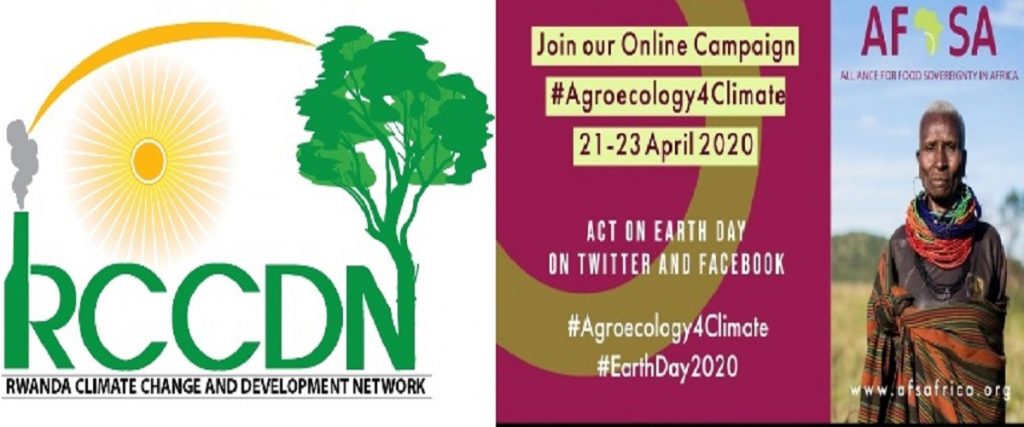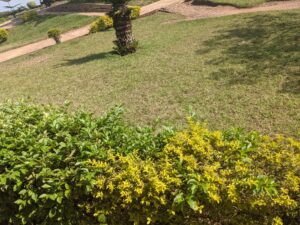By FaustinVuningoma.
Lockdown should remind us that we need to seek home grown solutions to deal with our challenges. Thanks to Rwanda engineers and medical doctors for fabricating ventilators that can be used to provide oxygen to patients in critical breathing condition; to Rwandan fabrics for making masks that can be used and cleaned for reuse over and over again; and to companies making sanitizers. This is a clear indication that Rwandans can find home grown solutions to address the challenges they encounter. This adds to many other initiatives that have worked for us including “Gacaca courts, Girinka, Umuganda, Abunzi” to mention among others.
During this time when we are celebrating “Mother Earth Day”, and as we campaign for Agroecology4Climate, we remember that Rwandans have been on the forefront to respond to their challenges with home grown solutions. We therefore hope that Ministry of Agriculture and Ministry of Environment can work hand in hand to resolve the food security challenge by adopting Agroecology as a national food production system that is climate resilient and that uses local farm inputs to produce sufficient food. Science has shown beyond reasonable doubt that this is possible.
The third Rwanda national communication report on climate change has shown that agriculture produces most greenhouse gases emissions accounting for 70.4% of the total national emissions. The emissions from agriculture are dominated by urea fertilizers application and enteric fermentation, the report says. The value of greenhouse gases (GHG) generated from the fertilizer imports since 2000 are estimated to have cumulatively reached 2.67 million t CO2 by the end of the 2013 farming seasons (REMA, 2016).
However, from the scoping analysis of the policy framework documents from Ministry of Agriculture on fertilizer use, Rwanda’s fertilizer consumption reached nearly 60,000 tons of fertilizer in 2015 from just above 4,000 tons in 1998. This impressive rise in fertilizer consumption and resultant impact is attributed to the crop production intensification policy (CIP). While chemical fertilizers may help to achieve higher crop yields, science urge that the use of chemical fertilizers lead to several problems such as decrease in food quality, resistance development in different weeds, diseases, soil degradation, micronutrient deficiency in soil, toxicity to different beneficial living organism. This contravenes the environment and climate change policy objectives and thus posing potential conflicts in realizing the mandate of the Ministry of Environment and that of the Ministry of Agriculture.
If Ministry of Agriculture implemented what is presented in the National Agriculture Policy actions such as promotion of the adoption of integrated soil fertility management which combines agri-environmental practices, resource recovery and reuse of fertilizer-enriched products through incorporating manure, crop residues and composting in current farming systems as well as supporting the increase in organic fertilizer production and utilization training as part of Integrated Soil Fertility Management practices, in conjunction with the gradual liberalization of fertilizer supply, Agroecology would find its room in Rwanda and climate resilience would be built in the Rwandan farming communities.
This would save Rwanda from spending so much on imported fertilizers and would positively impact on Rwanda’s balance of payments. Agroecology would therefore add to other home grown solutions, because it would solely promote the recycling of farm inputs in food production which would be cost effective, sustainable, and leading to food security and sovereignty, and income generation at household level.
Faustin Vuningoma is the Coordinator of Rwanda Climate Change and Development Network (RCCDN)





